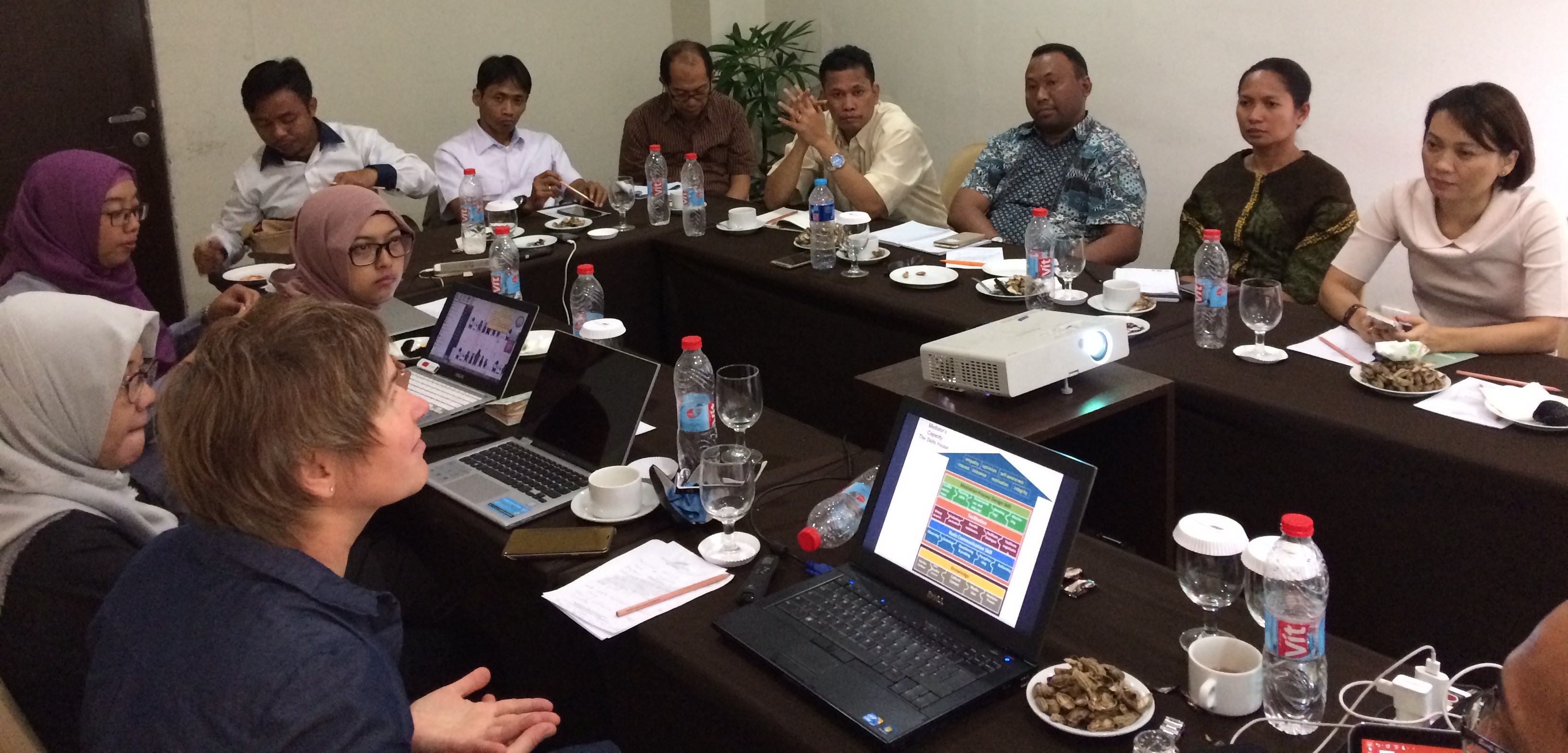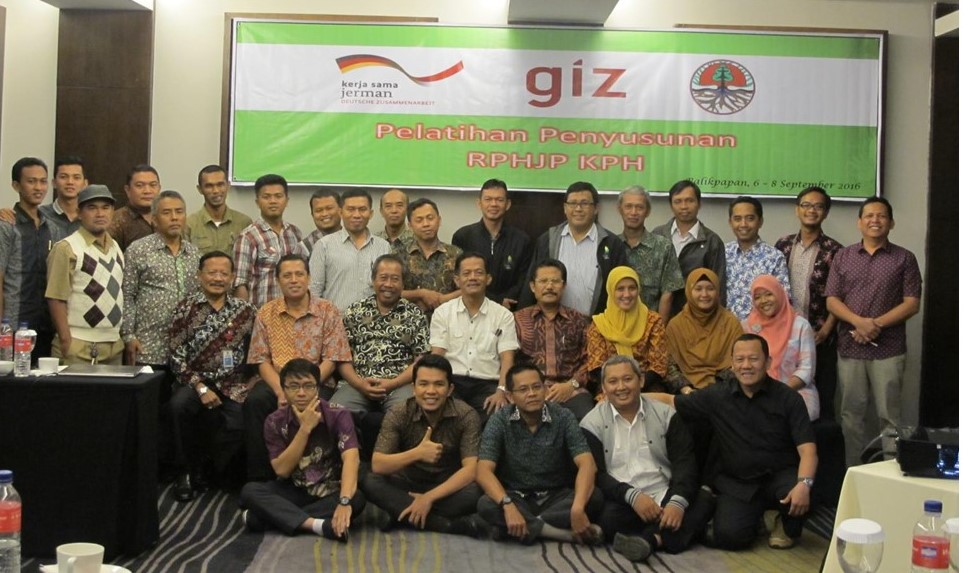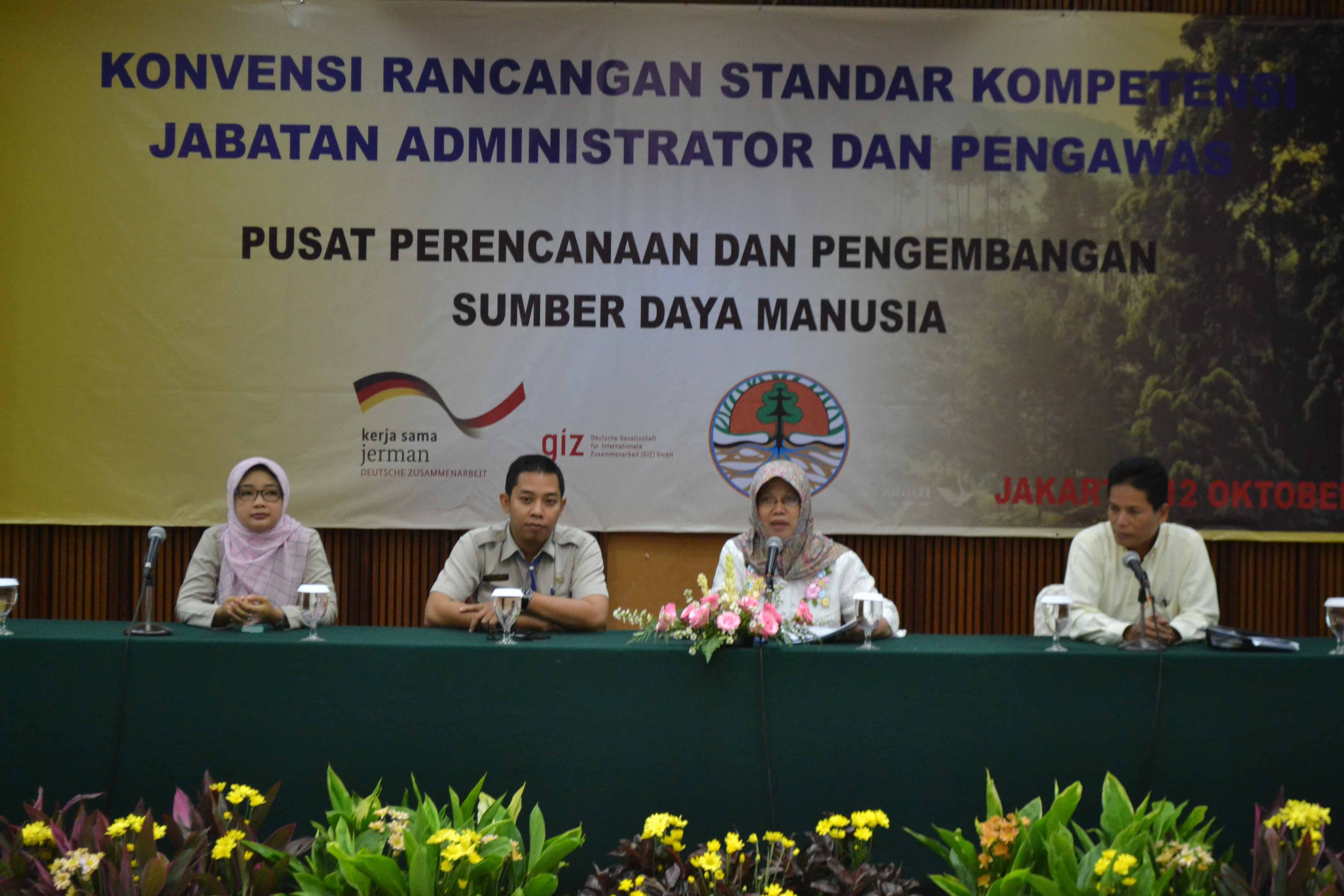FORCLIME
Forests and Climate Change ProgrammeTechnical Cooperation (TC Module)

Select your language

On 30 November 2016, FORCLIME and Working Group Tenure (WGT) organized a meeting in Bogor to discuss existing curricula for mediation of tenurial conflicts. The aim of this meeting was to identify the training material that could be used for an upcoming training of conflict mediators to be conducted by FORCLIME and WGT in Kapuas Hulu district in 2017. The planned mediation training is part of GIZ’s and WGT’s ongoing collaboration on supporting conflict resolution in Kapuas Hulu since 2014.
About 15 people participated in the meeting, including representatives from the Ministry of Environment and Forestry/MoEF (Directorate for Conflict Handling, Tenure and Indigenous Forest, Center for Environment and Forestry Education and Training), from NGOs (WGT, IMN, IICT, CRU) as well as FORCLIME. Several agreements resulted from the discussion, including:
1. The training curriculum will be developed based on already existing mediation curricula of the Supreme Court training institution and the MoEF’s Center for Environment and Forestry Education and Training.
2. There will be flexibility in the training curriculum to integrate locally and thematically specific training content such as customary laws, mediation through customary institutions, or the forestry regulatory framework.
3. Potential trainers will need to be experienced mediators and be associated with an accredited institution.
4. Participants of the mediation training are expected to work as conflict mediators in the future.
5. The training curricula will contain several stages, with basic mediation training being followed by advanced training.
For further information, please contact:
Edy Marbyanto, Strategic Area Manager, Human Capacity Development
Nina-Maria Gaiser, Junior Adviser, Forest Policy

The Production Forest Management Center Region XI in Samarinda together with FORCLIME conducted a training on the development of forest management plans for Forest Management Units (KPH), including both short- and long-term plans, as well as operational plans, for all KPHs in East Kalimantan, for KPH Malinau in North Kalimantan, and for KPH Kapuas Hulu in West Kalimantan. The purpose of the training, which took place from 6-8 September 2016 in Balikpapan, was to improve the capacities of KPH staff in developing their forest management plans and to monitor the progress of management plan preparations.
The training was assisted by the Ministry of Environment and Forestry through the Directorate of Production Forest Management Unit (KPHP), as well as Mr. Rudi Pryanto and Mr. Suhendro Bashor of the Directorate of Planning of Forest Land Use and Establishment of Forest Area Management (RPPWPH), who supported participants in preparing their KPH forest management plans in accordance with current regulations.
For more information, please contact:
Tunggul Butarbutar, Strategic Area Manager, KPH development
Suprianto, Technical Adviser, KPH development

The Center for Planning and Development of Forestry Human Resources (Pusrenbang SDM) at Ministry of Environment and Forestry (MoEF) together with FORCLIME, held a public consultation to improve existing Competency Standards for Administrators and Supervisors of MoEF on 12 October 2016 in Jakarta. The consultation had the following aims: 1) to obtain inputs from the stakeholder; and 2) to approve the current draft version of the standard through a Ministerial Decree. The preparation of the improved competency standard has been ongoing since July 2016 through a series of meetings organized by Pusrenbang SDM and supported by FORCLIME.
According to the Head of Extension and Human Resource Development Agency (BP2SDM), as forest management in Indonesia encounters more challenges, professional and dedicated human resources are needed. Appointment of staff to particular positions should be based on professionalism and competence aspects, not nepotism.
Further, the Head of Pusrenbang SDM emphasised in his presentation that administrators and supervisor at MoEF must have managerial, social and technical competences. Currently the Ministry of Environment and Forestry has 513 administrators and 2,307 supervisors. The competency standard is prepared as a guidance for assigning officials, and to provide the right person for the right job.
For more information, please contact:
Edy Marbyanto, Strategic Area Manager, Human Capacity Development


